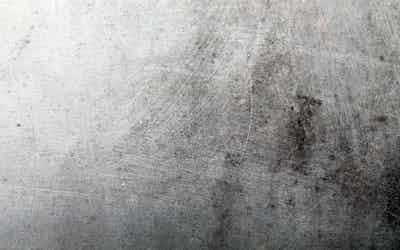Sheet waterproofing
Sheet waterproofing is a continuous layer of watertight material laid over a surface. This layer does not allow water to pass through. Sheet waterproofing provides a uniform thickness and does not rely on the applicator to check film thickness. It is best used in critical waterproofing infrastructure or when time constraints do not allow the drying of a liquid system.
Sheet waterproofing information

Fatra Australia
Fatafol 803
An unreinforced membrane on a base of plasticized polyvinylchloride (PVCP), type T according to the Standard EN 13967 for waterproofing of ground and underground buildings to aggressive pressure and sucking water and as a waterproofing layer of waterproofing systems to leakage of liquids and leaches into the ground waters.
Fatrafol 810v
A roofing membrane on the basis of PVC-P reinforced with a polyester grid. It is resistant to UV- radiation and can be exposed to the direct weathering influences.
Fatrafol 807v
A PVP-P based waterproof roofing membrane with underlay of a non-woven PES-textile (mass per unit area – 120g/m2). It is resistant to UV radiation and can be exposed to the direct weathering influences.
Fatrabond Adhesive – 9356
A fast curing formula with an excellent high coverage rate. Fatrabond contact adhesives 50% of the final strength immediately, with full strength achieved in 24 hours. It has a good moisture and weather resistance against high temperature exposure.
Fatrabond 1215 MCPU Adhesive
A solvent free adhesive that offers excellent bond strength and is an effective green solution to bonding our fleece back membranes.

Ardex
Ardex WPM 750
A fleece-lined heat weldable waterproofing sheet membrane specially designed for the direct adhesion of tiles and screeds within internal wet areas
Ardex STB STA Tape
A high performing self adhesive butyl tape designed to create a waterproof seal for drains, penetrations, junctions, and joints prior to ARDEX applied membrane solutions.
Ardex WA 98
A high performance membrane contact adhesive. It has been specially developed for ARDEX sheet applied membranes and adheres to a variety of substrates.
A fleece-lined weldable waterproofing sheet membrane specially designed for the direct adhesion of tiles and screeds within internal wet areas.
Ardex WPM 1000
A polypropylene-lined heat weldable waterproofing sheet membrane specially formulated for the direct adhesion of tiled systems or for other non-exposed use.

Parchem Construction Supplies
Fosroc Proofex 3100
High performance, bituminous self adhesive
waterproofing membraneFosroc Proofex Engage
Pre-applied waterproofing membrane that mechanically bonds to poured concrete, remaining in place if settlement of substrate occurs.
Vapordiffuser
Elastoplastomeric membrane with deep bitumen underside rivets, to allow water vapour to diffuse and provide waterproofing in the base layer in multi-layer systems.
Testudo
Elastomeric torch-applied membrane, reinforced with rot-proof non-woven single strand spunbond polyester fabric.
Testudo 30
Torch applied 5 mm thick high performance reinforced elastoplastomeric polymer – bitumen bridge deck waterproofing membrane.
Proteaduo P
High performance 4 mm thick torch applied waterproofing membrane with multilayer composite polymer bitumen and reinforcement.
Fosroc Proofex 6100
Woven polypropylene surfaced, bituminous self adhesive membrane.

Gripset Industries
Gripset BRW HD
A self-adhesive butyl rubber sheet membrane with a laminated high strength HDPE film facing designed for subterranean waterproofing and multi layered sheet membrane applications.
Gripset BRW PFN
A self-adhesive butyl rubber sheet membrane with a high strength needle punched fabric facing that supports the application of surface finishes for waterproofing internal and external areas. Compliant to AS4858 and AS4654.
Gripset GC2
An innovative heavy duty sheet membrane system that provides high performance waterproof/vapour proof and decoupling properties for external wet areas, roofing and specialised applications.
